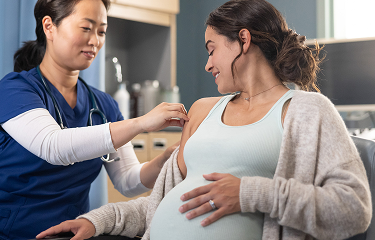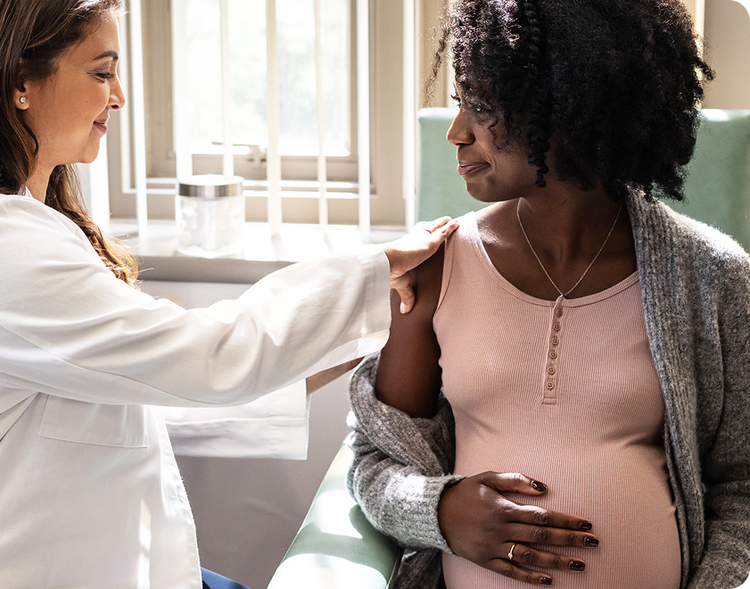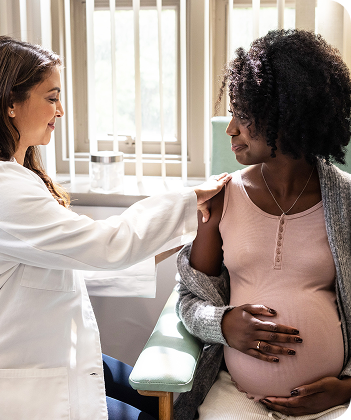image

mobile_image

image_caption
Actor portrayal
headline
You have the power to help protect your baby. Ask about Pfizer’s ABRYSVO® (Respiratory Syncytial Virus Vaccine).
content
ABRYSVO is the only RSV vaccine given during pregnancy, from 32 through 36 weeks, that helps protect your baby against respiratory disease caused by RSV, from birth through 6 months.
Talk to your OB-GYN and check your eligibility below.
Talk to your OB-GYN and check your eligibility below.
buttons
disclaimer
RSV=respiratory syncytial virus.
image

mobile_image

headline
Why protection from respiratory disease caused by RSV matters
content
RSV is a common and highly contagious respiratory virus that can make your baby sick.
- RSV is the #1 reason why babies are hospitalized, especially if they are under 3 months old
- Almost half of RSV-related hospitalizations in babies happen in the first 3 months of life
- Newborns are more vulnerable to RSV because their immune systems are still developing
Today’s the day to talk to your OB-GYN and learn how ABRYSVO may help protect your baby against respiratory disease caused by RSV, from birth through 6 months.
image_disclaimer
Actor portrayal
icon
headline
ABRYSVO is a CDC-recommended RSV vaccine
content
The CDC recommends ABRYSVO if you are 32 through 36 weeks pregnant during RSV season—from September through January in most of the U.S. There are areas in the U.S., including southern FL, AK, HI, and the U.S. territories, where RSV does not follow typical seasonal patterns and the recommended months for maternal vaccination may differ.
Vaccination with ABRYSVO may not protect everyone.
Vaccination with ABRYSVO may not protect everyone.
disclaimer
RSV=respiratory syncytial virus.
card_identifier

heading
Get to know more about RSV in babies
body
Use the FAQs to help you talk to your doctor about ABRYSVO, or to learn more about getting vaccinated while pregnant to help protect your baby.
cta
card_identifier

heading
Learn about cost and coverage for ABRYSVO
body
Find the latest on coverage and possible assistance available.
card_identifier

heading
Get information delivered to your inbox
body
Expecting? Don't miss your window to sign up for RSV info and learn how ABRYSVO can help protect your baby against respiratory disease caused by RSV, from birth through 6 months.
cta